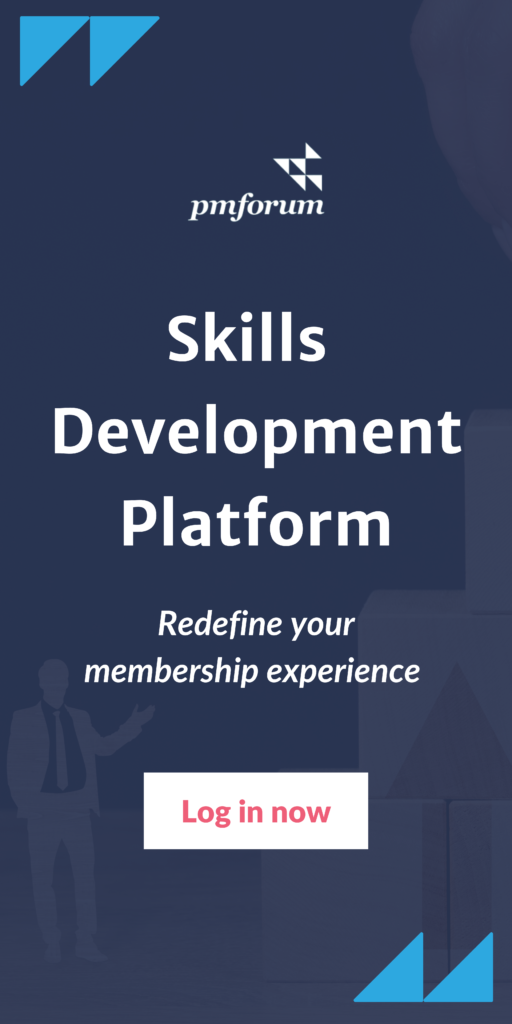Richard Chaplin introduces the Thought Leadership & Competitor (TLC) Intelligence toolkit – a novel solution that boosts cross-selling.
Exclusively for PM Forum and Managing Partners’ Forum members, the toolkit uses AI to match client issues with relevant quality articles from firms’ websites, generating rapid, objective, client-centric briefings before every client conversation, with follow-up emails copied to named article authors, supported by private online communities for clients, partners and experts.
The need for cross-selling in professional services firms arises from a structural defect in most client relationships. Clients prefer a single point of contact at a firm, meaning they often discuss specialist issues with advisors who, for most issues, are generalists. This mismatch of client issues and relevant expertise results in firms missing out on huge volumes of work.
The financial upside to cross-selling is well known. It is an ‘important’ or ‘very important’ contributor to profitability, according to 95% of the CEOs and leadership team members who complete the quarterly Managing Partners’ Forum Sector Trends Tracker. Research from Said Business School indicates that a modest improvement in cross-selling leads to a significant increase in partner profitability.
However, most cross-selling initiatives fail.
A constant mismatch of client issues and relevant expertise has spawned countless internal initiatives. These mainly focus on improving awareness of available expertise and stressing the need for timely introductions. Most fail as partners are generally reluctant to share work with barely known colleagues or to devote time to learning about an area of expertise unless it is seen as directly relevant to a pressing client issue. “It’s on the website when I need it,” is a typical unhelpful comment.
Positive impact
Marketers frequently resort to adding hundreds of average-quality, often AI-generated, articles to the firm’s website and flooding social media with messages to compensate for a lack of cross-selling. This makes it challenging for anyone to locate useful content on the firm’s primary shop window, and the usual next stop after an encounter with great ideas on social media.
Cross-selling also impacts business development (BD) teams. Prioritising higher value BD opportunities makes good commercial sense. The downside is frontline complaints that tailored support is seldom available for other opportunities. It is common, therefore, for BD team members to be embedded in partner groups to gain local knowledge and provide local support. However, if there is poor collaboration across BD teams, internal referrals tend to diminish.
TLC Intelligence toolkit
Client conversations happen all the time and are vital to the success of any business. Currently, those that could result in higher value opportunities tend to get active BD support, with the vast majority getting little or no support.
This novel solution, pioneered exclusively for members of the PM Forum and Managing Partners’ Forum, allows every client conversation to be supported through a rapid, automated, objective frontline briefing that combines:
A list of client issues, showing how each is being addressed by one or more highly scored articles. The playlist can be selected by the AI or manually by BD or frontline teams using live filters or free-flow collation.
Key questions to help the partner discuss each issue with the client to identify if it is an area in which the client would like help.
• Summaries and links to each selected article on the firm’s website.
• Issues that the client is likely to be interested in but where there are no relevant public articles on the firm’s website.
Frontline briefings can be shared as PDFs or accessed directly by the partner. A proforma follow-up email has a section for each issue, and summaries and links to relevant articles. The email asks if the client would like to be introduced to the named authors of those articles or to join a private online community with them. The partner is also encouraged to send a draft of the email to the relevant article author(s) for extra insights.
Under the AI bonnet
An objective, panoramic mystery shopper, which scores every content item on any website in a few hours has been combined with an engine that rapidly identifies issues that are likely to be relevant to a specified client, matches those issues with public articles published by the firm, and generates a tailored frontline briefing and follow up email that are shared with named article authors.
TLC Intelligence benefits
In addition to this novel solution that boosts cross-selling, the toolkit allows marketers to take control of the content on their website, thereby enhancing the client experience and their firm’s position in comprehensive, open thought leadership rankings, sponsored by Williams Lea.
The toolkit also allows boards to focus on strategic alignment of key messages and thought leadership ROI, and CEOs to be more confident when developing and sharing their vision and strategy in a brave new world of transparent, objective competitor analysis. Little wonder that Forum members worldwide are commenting that strategy, website content, competitor analysis and frontline briefings will never be the same again. Unsurprisingly, partners are mostly looking forward to a big boost in their profits.
The TLC Intelligence process
In five simple steps, PM Forum members can steal a march on their competitors.
Step 1. A prompt is prepared: ‘Partner X is in discussion with the [job title] of [company Z]. Please identify any high-scoring public articles that our firm has published over the past [6] months that address issues that are likely to be relevant to the discussion.’
Segmentation information about the client contact, their organisation and likely issues can be entered by the BD or frontline teams or generated by the AI.
Step 2. The AI looks externally for data (eg. news or the client’s website, etc) to validate the issues that might be relevant to the client, matching these to the public articles published by the firm. It also checks if there are other issues that the client is likely to be interested in but where there are no public articles on the firm’s website.
Step 3. The ‘own firm content’ page is then populated with a playlist of the selected articles, each of which has a brief AI-generated summary. Article selection can also be carried out manually by the BD team or the partner using live filters and other tools. The resulting playlist is then fine-tuned.
Step 4. A structured frontline briefing is generated. This provides a list of client issues showing how each is addressed by one or more of the playlist articles, and some key questions to help the partner discuss each issue with the client to identify if it is an area in which they would like help. The briefing also flags issues that the client is likely to be interested in but with no public articles on the website, and provides summaries and links to each playlist article. Frontline briefings can be shared as PDFs or accessed directly by the partner.
Step 5. Following the conversation, a proforma follow-up email can be requested by either the partner or the BD team. This contains a section for each issue and summaries and links to relevant articles from the playlist. The email asks if the client would like to be introduced to the article author(s) or other experts, or to join a private online community with the partner and the experts. The partner is encouraged to send a draft of the email to the article author(s) for extra insights and to enhance cross-selling. The system also nudges the partner to ensure that the final version of the email is sent to the client within X days of the conversation.
To find out more about the Thought Leadership & Competitor (TLC) Intelligence toolkit or to join the pilot programme, visit www.pmforum.co.uk
Advantages of TLC Intelligence
The novel solution has at least 10 universal advantages:
- Mandatory, objective frontline briefings help management and BD teams identify when to provide extra support to individual partners.
2. Client issues are matched with all public articles on a firm’s website, thereby bypassing silos.
3. The objective scoring system ensures that websites can be cleaned with only quality articles shared with clients.
4. The knowledge contained in a frontline briefing is hard-wired in the brain when it directly influences the outcome of an imminent client conversation.
5. Clients are impressed by the quality of insight being delivered, increasing the likelihood of the firm being instructed.
6. Firm experts can focus their BD activity on qualified leads due to their articles being shared on a timely basis with clients.
7. Partners are more likely to engage with colleagues around a common project.
8. Clients are encouraged to liaise with firm experts, join private online communities with those experts, and visit the firm’s website to read relevant articles, increasing client engagement and loyalty.
9. Each BD team member can support more partners. It is easier to hire from outside the sector once client issues are automatically identified and matched with quality articles.
10. Frontline complaints over the lack of marketing and BD support should be a thing of the past.
Richard Chaplin is the Founder and Chief Executive of the PM Forum.



